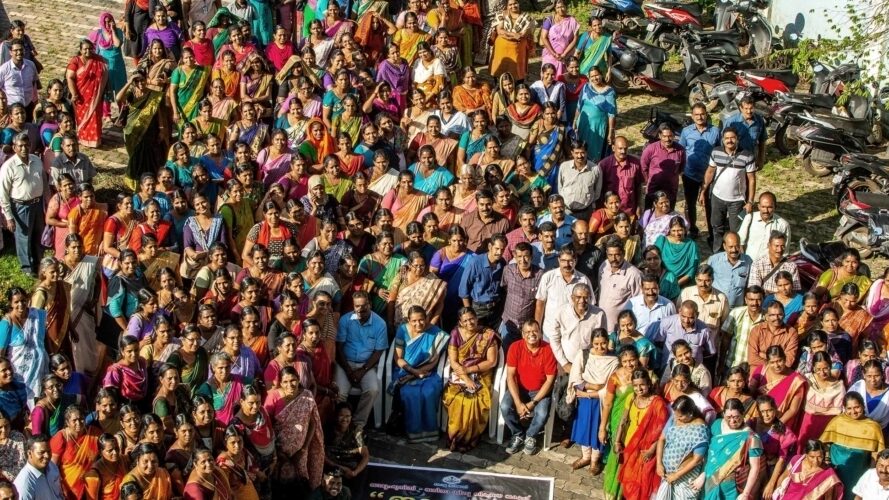Disaster Response: Human Trafficking and the Kerala Floods
Human Trafficking
Historic monsoon rains and flooding have left hundreds dead and millions displaced in the southern Indian state of Kerala in the last two months.
In the turmoil following a disaster of this magnitude, millions of poor women, children and men have lost everything and are now vulnerable to human trafficking unless they can be protected.
Soon after the massive floods began, IJM started working with the Kerala Chief Minister’s office and senior law enforcement officials on a robust, 6-month anti-trafficking project to help local officials protect the most vulnerable.
IJM stepped in to initiate a top-down intervention on human trafficking—called Surakshita Keralam (Safe Kerala)—by offering our expertise and personnel to the embattled but proactive state government.
Last week, our team completed the first phase—training more than 650 local government officials on how to spot signs of human trafficking and assist families in need (pictured above).
In the next phase, on the Kerala government’s behalf, we will monitor local officials’ efforts to do a rapid assessment survey of flood-affected communities, find those at risk, and develop plans for their long-term protection.
IJM teams will also help the government run rehabilitation initiatives for at-risk families and will partner with local NGOs to further combat human trafficking using technology.
We hope this disaster response will protect the millions of displaced and vulnerable families avoid abuse from organized crime networks exploiting the tragedy.
IJM has worked with local NGOs in Kerala for years to rescue and restore victims of bonded labor slavery. Many IJM staff members across India also have family living in the state.